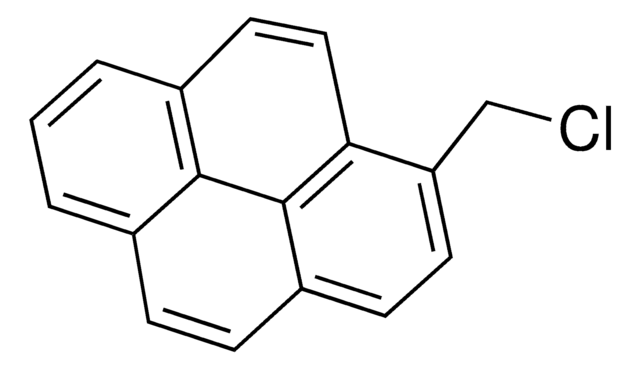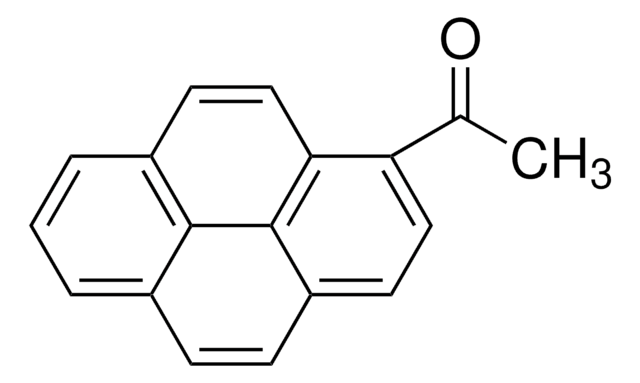394408
1-(Bromoacetyl)pyrene
97%
Synonym(s):
2-Bromo-1-(1-pyrenyl)ethanone
About This Item
Recommended Products
Assay
97%
form
solid
mp
129-131 °C (lit.)
SMILES string
BrCC(=O)c1ccc2ccc3cccc4ccc1c2c34
InChI
1S/C18H11BrO/c19-10-16(20)14-8-6-13-5-4-11-2-1-3-12-7-9-15(14)18(13)17(11)12/h1-9H,10H2
InChI key
KAEDEGFCOPIKKM-UHFFFAOYSA-N
Related Categories
General description
Application
- As an initiator in the bulk polymerization of 2-ethyl-2-oxazoline to generate pyrene labelled poly(2-ethyl-2-oxazoline) (PETOX-py).
- As a fluorophore in the generation of podand-type fluoroionophores with two pyrene moieties.
- As a fluorescent labeling agent for the determination of okadaic acid toxin by HPLC with fluorescence detection.
- As a photoremovable protecting group for carboxylic acids and amino acids.
- As a photoinitiator in the photopolymerization of styrene with methylmethacrylate.
- As a reactant in the synthesis of potentially tetradentate pyrene appended ligands.
- As a derivatizing agent of dialkyl phosphates (DAP) in the HPTLC method of quantitative determination of DAP in fruit juices.
Signal Word
Danger
Hazard Statements
Precautionary Statements
Hazard Classifications
Aquatic Chronic 4 - Eye Dam. 1 - Skin Corr. 1B
Storage Class Code
8A - Combustible corrosive hazardous materials
WGK
WGK 3
Flash Point(F)
Not applicable
Flash Point(C)
Not applicable
Personal Protective Equipment
Certificates of Analysis (COA)
Search for Certificates of Analysis (COA) by entering the products Lot/Batch Number. Lot and Batch Numbers can be found on a product’s label following the words ‘Lot’ or ‘Batch’.
Already Own This Product?
Find documentation for the products that you have recently purchased in the Document Library.
Customers Also Viewed
Our team of scientists has experience in all areas of research including Life Science, Material Science, Chemical Synthesis, Chromatography, Analytical and many others.
Contact Technical Service













